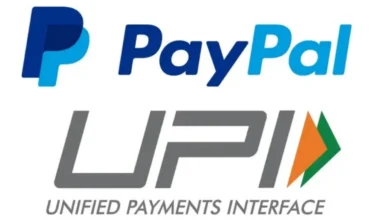Online Gaming Law: Payment Companies Seek Sufficient Time for Processing Customer Refunds

Online Gaming Payments: Companies Request More Time for Refunds & Chargebacks Under New Act
India’s new Promotion and Regulation of Online Gaming Act, 2025 is changing the game for the country’s growing online gaming industry. This law aims to help the industry grow while keeping players safe. A big issue is emerging for payment companies, though. They face challenges with processing customer refunds and chargebacks on time. This article looks at what payment processors are asking for. It covers their requests for more time from MeitY and RBI. We also check out what this could mean for players and businesses alike.
The heart of this problem lies in complex refund and chargeback steps. These steps happen within quick digital payment systems. New rules need payment companies to get ready. They need enough time to work smoothly and follow the law. This helps keep user experiences good and finances honest.
Section 1: Understanding the Promotion and Regulation of Online Gaming Act, 2025
Key Provisions for Payment Processing in Online Gaming
The Online Gaming Act, 2025 sets clear rules for money matters. It states how payments, refunds, and chargebacks must work. You will find specific deadlines for these transactions. The law also details how payment systems need to operate. These rules are key for anyone handling online game money. For example, the Act might say refunds must happen within X number of days. It also ensures funds are held securely.
Defining Refunds and Chargebacks Under the Act
The new law makes a big difference between a refund and a chargeback. A refund happens when a gaming platform returns money to a player. This could be due to a game error or a player’s choice. A chargeback is when a player’s bank forces a refund. This usually occurs if a player claims fraud or an unapproved transaction. The Act provides exact scenarios for when each applies. It helps avoid confusion and protects player money.
MeitY and RBI’s Role in Enforcement
The Ministry of Electronics and Information Technology (MeitY) and the Reserve Bank of India (RBI) are the main watchdogs. MeitY sets the overall rules for online gaming itself. RBI handles all the payment system regulations. Both bodies work together to ensure the Act’s payment parts are followed. They have the power to check companies and make sure rules are met. This protects players and keeps the financial system stable.
Section 2: The Payment Companies’ Perspective: A Need for Sufficient Time
Current Challenges in Refund and Chargeback Processing
Payment companies face real hurdles with quick deadlines. Technical issues often pop up. They must link new systems with old ones. Matching financial records across many platforms takes time. Spotting fake refund requests is also tough. These steps are not instant; they need careful handling. Imagine trying to fix a fast-moving puzzle.
The Complexity of Digital Payment Reconciliation
Balancing money across different systems is very hard. Think about many transactions happening every second. These flow through various payment apps, bank accounts, and gateways. Making sure every penny is accounted for takes immense effort. It’s like sorting thousands of tiny pieces of paper, all at once. Getting this right is critical for financial accuracy.
Impact of Inadequate Infrastructure
Many current payment systems might not be ready for new rules. They need updates or big changes. Faster refund and chargeback processing means stronger tech and better tools. Without these updates, delays and errors can easily happen. It’s like trying to run a marathon in old, worn-out shoes. We need the right gear to meet new demands.
Section 3: The Request for Extended Timelines: Why More Time is Needed
Ensuring Customer Protection and Fair Practices
More time helps payment companies build strong systems. These systems truly protect players from scams. They also make sure disputes are handled fairly. Rush jobs can lead to mistakes. This might hurt a player’s wallet or trust. Giving enough time means better safeguards for everyone.
Balancing Speed with Accuracy
There’s a real tug-of-war between doing things fast and doing them right. Processing refunds quickly is good for players. But verifying each request carefully stops fraud. Payment companies want to be both quick and correct. They need time to find this balance. How do you go fast without missing key details?
Avoiding Systemic Risks and Operational Overload
Rushing the new rules can cause big problems. It might lead to more errors or ways for people to cheat the system. It also puts a lot of stress on payment companies’ teams. This strain could make the whole payment system less reliable. More time can stop these bigger issues from happening. It secures the system for all users.
Section 4: Potential Implications of the Act on the Online Gaming Ecosystem
Impact on Consumer Trust and Gaming Experience
How well refunds and chargebacks work directly affects player trust. If these processes are smooth, players feel safe using gaming platforms. If they are slow or messy, players might stop playing. A good experience with money matters builds confidence. Poor handling can quickly break it. For more details on user protection, see our article on “Secure Online Gaming Practices.”
The Role of Clear Communication and Dispute Resolution
Clear talks and easy ways to solve problems are very important. Timely processing helps make this happen. Players need to know what to expect and who to talk to. Good communication paired with fast action fixes issues quickly. This stops small problems from becoming big ones.
Economic Ramifications for Gaming Operators and Payment Providers
Delays or errors in payments can hit businesses hard. Online gaming companies might see fewer players. Payment providers could face fines or a bad name. This can slow down growth for both sides. The health of the whole online gaming economy depends on efficient payments. We need systems that support growth, not hinder it.
Section 5: Towards a Compliant and Efficient Future
Collaborative Approach: Industry and Regulators Working Together
Payment companies, gaming platforms, MeitY, and RBI need to talk. Working together helps find solutions that actually work. This open chat can clear up rules and make them better. A team effort is the best way forward. It builds a stronger future for everyone in the industry.
Best Practices for Payment Processing in Regulated Online Gaming
To get ready, payment companies should focus on a few key areas. First, upgrade your technology to handle new demands. Second, make your processes simpler and clearer. Third, create strong compliance teams to stay on top of rules. These steps will help you adapt to the new Act. Remember, preparation is key for success.
Anticipating Future Regulatory Adjustments
The rules might change again. It’s smart to build payment systems that are flexible. This means they can handle new updates or rule clarifications easily. A flexible system saves time and money later on. Think about future needs now to stay ahead.
Conclusion: A Call for Measured Implementation
The Promotion and Regulation of Online Gaming Act, 2025 marks a big shift. Payment companies asking for enough time for refunds and chargebacks makes sense. They want strong, safe, and legal ways to handle money. A balanced approach means the industry and regulators work as a team. This ensures the new Act truly helps online gaming grow. It also puts player protection first. Giving payment processors the right amount of time and tools is key. This will build systems that are both fast and fair.




